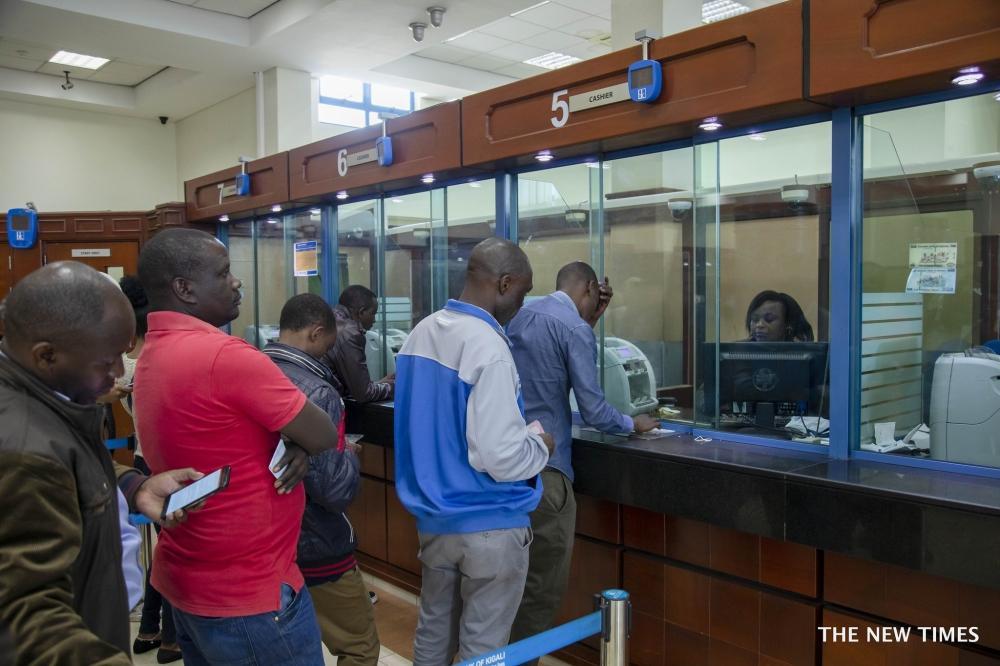Desire Rumanyika
Africa-Press – Rwanda. For Rasta, Saturdays start early in the salon where he rents a station in Kisimenti. Clippers in hand, his regulars trust his skill. In the corner, Clemence the braider keeps her fast hands and quick jokes going. Her work is flawless, her clients loyal, her income steady enough to pay rent and keep going.
Neither of them have bank accounts.
It’s not that they don’t earn enough. They do. Sometimes more than salaried workers. But their income is unpredictable: some days bring in a lot, others not so much. What is predictable, however, is that commercial banks don’t seem built for them. And frankly, they don’t feel the need to walk into one.
We often frame this as a “financial inclusion” issue. But that assumes people like Rasta, Clemence, and other creatives or gig workers aren’t already financially active. They are. They use SACCOs, mobile wallets, savings groups. And when things are tight, they turn to private lenders like “Banque Lambert”.
So the question is: why aren’t they banking with us?
Let’s be honest. Our systems weren’t built with them in mind.
Commercial banking was designed for structure: payslips, collateral, proof of address, predictable income. But the informal sector, or abanyabiraka, as they’re often called, doesn’t operate in straight lines. Their income is uneven, but it’s there.
Where we ask for forms and waiting periods, they expect speed. Where we promote “competitive interest rates,” they’re paying 30% a month from private lenders and still coming back. Why? Because those options are fast and accessible.
The wall between banks and the informal sector
There’s a quiet standoff between commercial banks and Rwanda’s informal economy. We hesitate to serve people without formal proof of income. They, in turn, don’t see themselves in our halls.
We’ve become symbols of blazers and bureaucracy. Of waiting. Of being “for the rich.” So the real question isn’t just how to include them. It’s how to be relevant to them.
What can banks offer that others can’t?
Let’s not sell ourselves short. Commercial banks still bring what others can’t: scale, long-term financial tools, formal protections, financial literacy and even speed- with our digital channels. We can help someone move from borrowing Rwf 200,000 for stock to owning a salon. We can help them build capital, save for emergencies, grow credit scores, and access loans or asset financing at fairer rates.
But to matter in the informal sector, we must do more than rebrand. We must redesign.
A call to rethink banking, not just products
We need to ask tougher questions:
Can we rethink traditional banking models to be faster, more flexible, while still managing the real risks that come with informal markets?
Can we design credit products based on cash flow patterns, not just collateral?
Can we create simple, processes?
Can we invest in market education about banking, but in ways that are relatable, not just shiny brochures or well-designed PowerPoints?
Just like we’ve built SME Centers and Institutional Banking Centers, can we create service centers designed for informal traders and gig workers, staffed by people who understand their financial models?
Consider BancoSol a commercial bank that has served informal microentrepreneurs for more than three decades. It embeds loan officers in communities, designs credit using first-hand cash-flow insights, and simplifies documentation. All while managing portfolio risk.
At Bank of Kigali, we’ve also laid the groundwork: over 5,300 BK agents, mobile banking and remote account opening. To truly bridge the gap, we must now scale with deeper personalization,stronger market education, and product design built around the realities of informal livelihoods.
So, can commercial banks work for Abanyabiraka?
Only if we’re willing to bend the frame. Only if we stop asking how they can fit into banking, and start asking how banking can fit into their lives.
Because they’re not waiting for us. They’ve already built systems that work: imperfect, but fast. Risky, but human.
The real question is: are we ready to design for the reality that already exists?
The author is the Chief Digital and Retail Banking Officer
Source: The New Times
For More News And Analysis About Rwanda Follow Africa-Press






